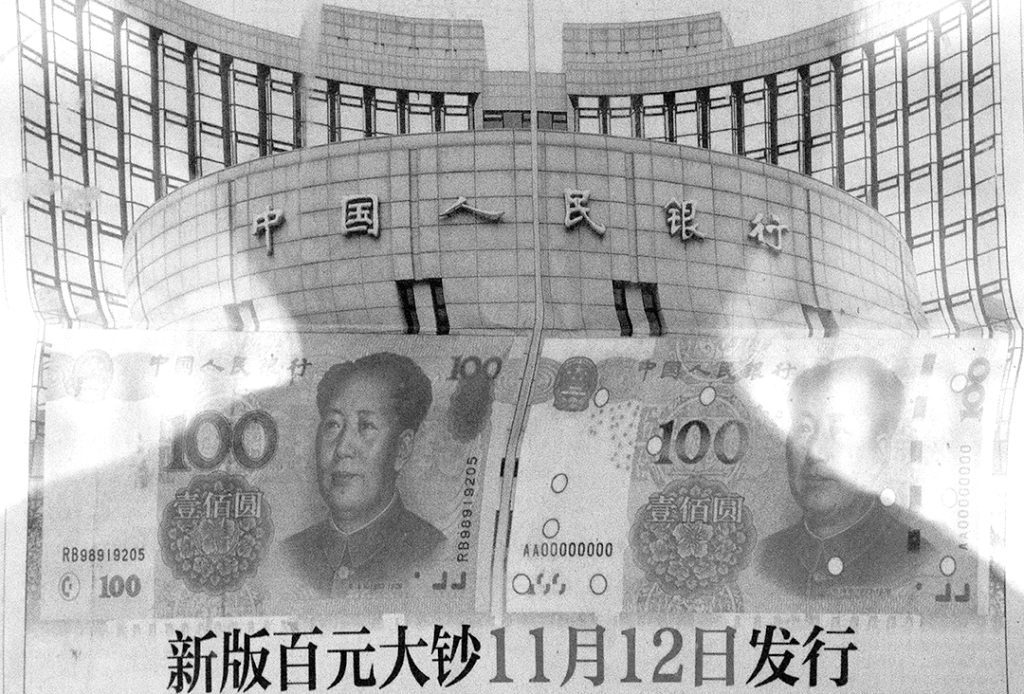Sure! Here’s a paraphrased version of the article formatted in HTML, retaining the core information and organized into seven paragraphs.
<div id="article_content">
<div id="single_article_image">
<img width="1080" height="732" src="https://ogden_images.s3.amazonaws.com/www.miningjournal.net/images/2025/08/22143815/AP25233207384741.jpg" class="attachment-large size-large wp-post-image" alt="" decoding="async" fetchpriority="high"/>
</div>
<p id="caption">In this Aug. 11, 2015 photo, a man’s silhouette is seen reading a newspaper in Beijing announcing the People's Bank of China will launch the 100 renminbi notes starting Nov. 12. (AP file photo)</p>
<p>BANGKOK (AP) — China is increasing its digital currency initiatives to enhance the global adoption of the yuan, aiming to underline its position as the second-largest economy and to counterbalance the dominance of the U.S. dollar in international finance.</p>
<p>Despite these efforts, hurdles such as restricted access to Chinese financial markets and the limited convertibility of the yuan create significant challenges for its wider global acceptance.</p>
<p>Meanwhile, Hong Kong has established regulations for stablecoins, and some local experts advocate for further frameworks to facilitate a potential stablecoin linked to the yuan. Officials at the People’s Bank of China and State Council Information Office have yet to comment on reports that a strategy for yuan internationalization may include a stablecoin.</p>
<p>In the U.S., President Donald Trump has focused on supporting cryptocurrency regulations, recently signing the GENIUS Act to govern stablecoins. Stablecoins, which are digital currencies tied to a specific fiat currency like the U.S. dollar, serve primarily as a means of payment rather than as investment assets.</p>
<p>China debuted its digital yuan, the e-CNY, in 2019 on a trial basis, with businesses like McDonald's initially participating. While transactions in decentralized cryptocurrencies like Bitcoin have been banned, the e-CNY is encouraged. As of July 2024, trial areas reported transactions totaling 7.3 trillion yuan in the digital currency, which is also being promoted in Africa as China expands its business presence there.</p>
<p>In Hong Kong, which operates under a distinct financial system, a stablecoin law was enacted on Aug. 1 to attract affluent investors in digital assets. This law mandates that a stablecoin linked to the Hong Kong dollar must maintain reserves equivalent to its value. However, experts assert that new regulations would be essential for the introduction of a yuan-based stablecoin in the region.</p>
</div>This version maintains the original information while presenting it in a structured HTML format.



